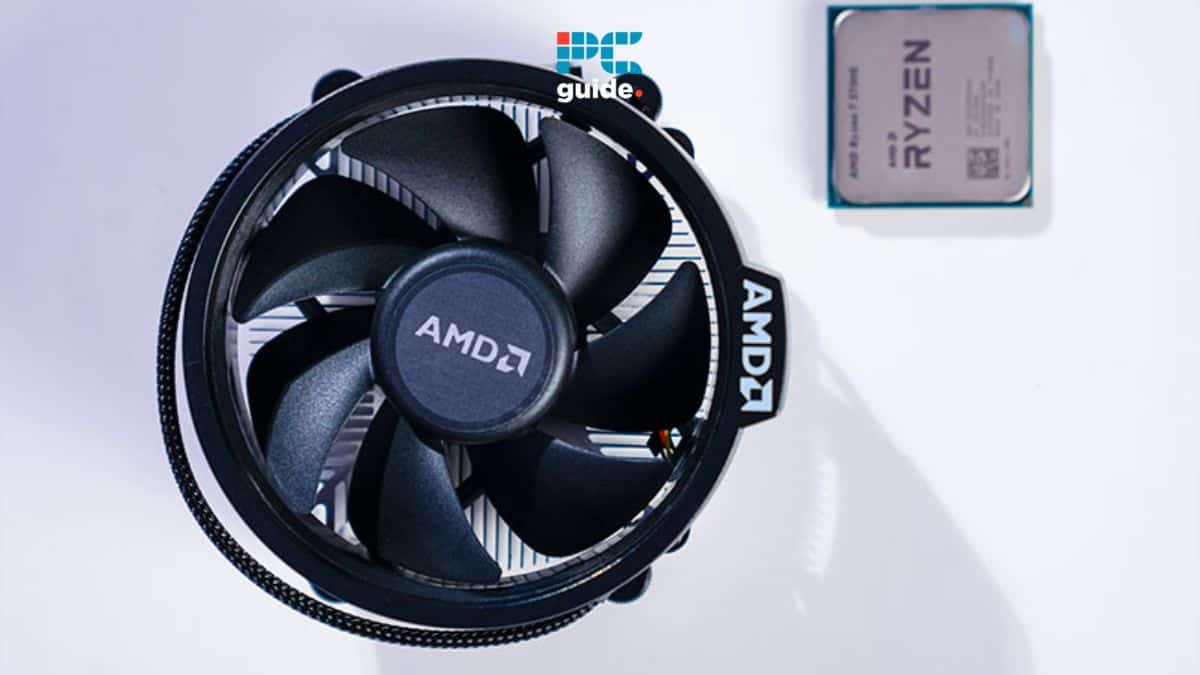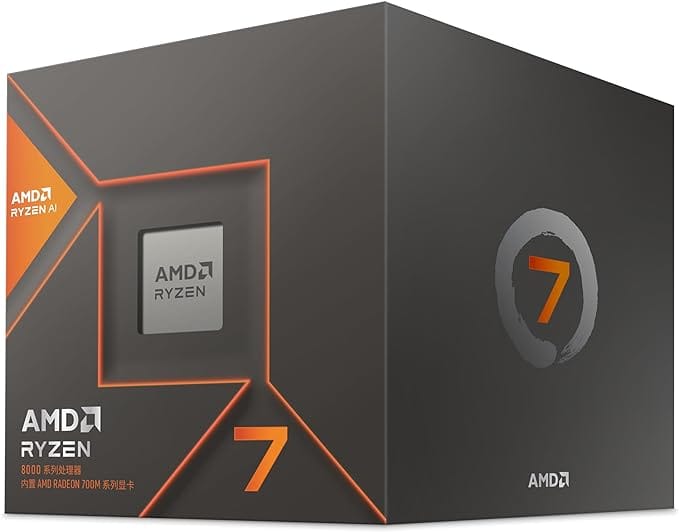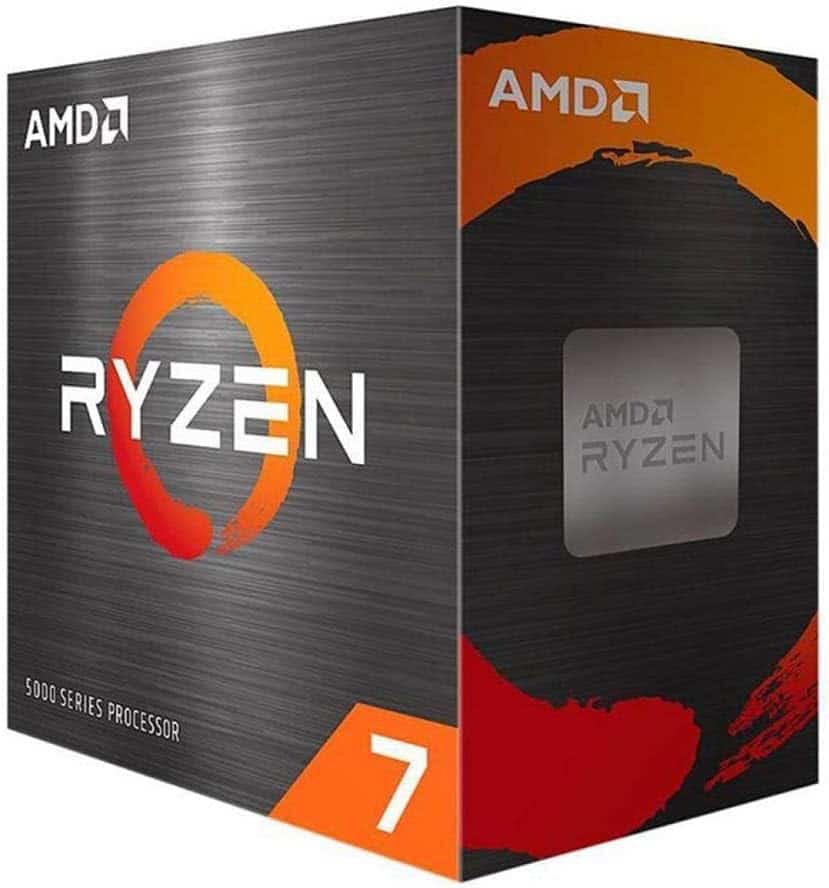Best AMD Ryzen APU in 2025 – our top picks

Table of Contents
You don't always need a whole set of CPU and GPU to have a solid system; sometimes, all you need is a great APU, and AMD is powerful in making them.
Now, the APU (Accelerated Processing Unit) is by no means a new concept, having entered the market in 2011. However, we've come a long way from the capabilities of these early-generation processors. Thanks to AMD combining its state-of-the-art Ryzen architecture and progressive Radeon GPU technologies into a single powerhouse chip, the APU landscape has been reinvigorated.
Even though now on AM5, AMD has equipped every CPU with integrated graphics, the APUs are more dedicated to the cause. As AMD has released the 8000G series on a platform separate from the usual processors.
That said, it doesn't make selecting a single option any easier. To that end, we've put together this guide, which lists different options, their details, and pros and cons to help you make an informed decision.
Products at a glance
-
-
Best mid-range Ryzen APU
AMD Ryzen 5 8500G
- Cores: 6
- Threads: 12
- Boost speed: 5GHz
- Base speed: 3.5GHz
- L3 Cache: 16MB
- TDP: 65W
-
Best budget Ryzen APU
AMD Ryzen 7 5700G
- Cores: 8
- Threads: 16
- Boost speed: 4.6GHz
- Base speed: 3.8GHz
- L3 Cache: 16MB
- TDP: 65W
How we picked
Our selection of the best AMD APUs focuses on balancing CPU and GPU performance, assessing how well each APU in the AMD lineup handles gaming and general computing. We analyze benchmark scores across various game settings and consider overall value, including power efficiency, thermal management, and price-to-performance ratio.
We take a deep dive into both performance metrics and real-world applications, supported by our APU topic knowledge. Initially, we assess the raw specs: the number of cores and threads, boost clock speed, base clock speed, cache size, and TDP.
These factors are pivotal in determining how the APU will handle gaming tasks and graphical performance. However, specs on paper don't always translate directly to real-world performance. Hence, we also assess user reviews and benchmark results and consider how each APU might compare to other integrated graphics solution processors, such as those by Intel.
To cater to all audiences, we've made sure to evaluate entry-level APUs and ones at the higher end of the price and performance, so there are APU choices for every rig. Along a similar line, you can also read about our picks of the best CPU for integrated graphics, as well as about the rundown of the best motherboard CPU combos.
Best APU in 2025

- Cores: 8
- Threads: 16
- Boost speed: 5.1GHz
- Base speed: 4.2GHz
- L3 Cache: 16MB
- TDP: 65W
- Platform: AMD (AM5)
- iGPU: Radeon 780M
- Great for gaming in low-mid resolutions at 1080p
- It comes bundled with a Wraith Spire cooler
- A low TDP of 65W should keep it cool
- Not the best options to play demanding games
- Not compatible with DDR4 memory
- The price is high, given its graphical output
When it comes to APUs, no one could challenge the Ryzen 7 8700G, and that is why it has the top spot on our list. Team Red has made significant advancements compared to the 5000 series APUs, particularly moving away from the Vega integrated GPU.
This APU features eight cores, 16 threads, a base clock of 4.2GHz, a boost clock of 5.1GHz, and a 24MB cache. What this means is that it should have enough processing power to handle various casual and demanding tasks without compromising performance. On top of that, it has Radeon 780M as the iGPU, which should let you casually game, but it won't be as powerful as a discrete GPU and can't push 60+ FPS on high resolution.
That said, according to AMD, the 8700G is 4.6 times faster in Cyberpunk 2077 and 3.8 times faster in Assassin’s Creed Valhalla than the i7-14700. Remember that these results are just with the iGPU of both chips, and no dedicated GPU was used, putting the Radeon 780M against the Intel UHD 770 graphics.
In another AMD comparison, the Ryzen 7 8700G outperformed the Intel Core i7-13700 in responsiveness, productivity, graphics, and more. Both processors were paired against each other in Geekbench v5 Single Core, PCMark 10, and 3DMark Fire Strike, and the 8700G was 5%, 41%, and 300% faster than the 13700, respectively.
This should give a good idea of how powerful the 8700G is and how it should be able to handle various tasks. Despite its performance, it has a low TDP of 65W, which should keep its temperatures relatively low. However, the thermal output can fluctuate depending on the CPU cooler, the thermal paste used, and the ambient temperature.
To ensure optimal performance and low temperature, we recommend using the best CPU cooler and thermal paste. If you're interested in learning how to remove and apply thermal paste, we've also got you covered there. Overall, its price of $329 and its performance make it one of the best APUs on the market right now and should serve you well across the board.

- iGPU: Radeon 740M
- Delivers good performance for its price point
- It has a configurable TDP of 45-65W
- It has 4 Zen 4c cores for better performance and lower power draw
- The 740M isn't great for gaming above low settings
- It is not the best option for heavy workloads due to the lower core count
Next, we have the Ryzen 5 8500G as a mid-range pick because it costs significantly less than the 8700G but still has decent specifications, which should deliver good performance.
For starters, this APU has six cores, 12 threads, a base clock of 3.5GHz, a boost clock of 5.0GHz, and a 22MB cache. What this means is that it should have enough juice to power your system for various casual and mid-tier demanding tasks. It comes paired with Radeon 740M graphics, which should power your gaming sessions, given that the games run at low resolution with lowered settings.
Since the iGPU doesn't have dedicated VRAM, this level of performance is to be expected. The system shares the memory, and the iGPU has to make do with what is available.
According to AMD, the Ryzen 5 8500G is 2.7 times faster than the Intel Core i7-14700K in Cyberpunk 2077. This comparison was done for the integrated graphics of both processors without a GPU. These results are impressive when considering how demanding Cyberpunk 2077 is.
This APU is built on the Zen 4 and Zen 4c architecture. Zen 4c is the same as Zen 4 but is compressed to take less space on the CPU die, hence being able to fit more cores. A trade-off for the smaller size is reduced clock speeds, but overall, it makes for a more efficient core. This allows the core to deliver the same level of performance while consuming less power.
This processor also requires an AM5-compatible motherboard and DDR5 RAM, as the 8000 series APUs are built for the AM5 platform. That said, while this APU might not cost much, the overhead cost can increase if you don't have next-gen components available. So, if you're interested in exploring some options, we recommend you check out our best AM5 motherboard and the best DDR5 RAM guides for the top picks.

- Cores: 8
- Threads: 16
- Boost speed: 4.6GHz
- Base speed: 3.8GHz
- L3 Cache: 16MB
- TDP: 65W
- Platform: AMD (AM4)
- iGPU: RX Vega 8
- Great thermal design keeps it running cool
- It comes with a Wraith Stealth cooler
- It is unlocked for overclocking
- Vega graphics are subpar in the modern landscape
For our pocket-friendly pick, we have the Ryzen 7 5700G, the high-end, all-in-one solution of AMD's 5000 generation processors.
Let's kick things off with some specifications. This APU is powered by eight cores and 16 threads. On top of that, it has a base clock speed of 3.8GHz, a boost clock speed of 4.6GHz, and a 16MB L3 cache. What this translates to is that you should be able to conduct most casual and demanding tasks with this processor without a hitch.
That said, the graphical aspect of this CPU and GPU combination isn't the greatest, as it runs the RX Vega 8, which performs considerably less than the Radeon 780M. However, powering basic desktop applications should be more than enough. So, if you don't have a GPU or are waiting for one to be delivered, this CPU should hold the fortress without any issues.
A great aspect of this processor is that it is compatible with the AM4 socket and DDR4 memory. It also has a configurable TDP. This means it should sit comfortably on any existing AM4 motherboard, and you won't have to purchase a new one. Its DDR4 compatibility should also help save costs. However, if you're interested in exploring some options, we've covered the best DDR4 RAM available, which should help boost your system’s overall performance.
It has a low TDP of 65W, which can be lowered to 45W due to its configurable TDP functionality. This should result in less power draw and thermal output, but the clock speed could also be reduced.
Overall, this is a solid option for general and demanding processing, and the iGPU should fare well in basic tasks. At the time of writing, this APU costs $150, which, given its performance, makes it a steal.
Why you can trust us
At PC Guide, we have plenty of hands-on experience testing processors and essential computing hardware. We zero in on what matters most: performance, efficiency, and real-world reliability.
While we can't always run every processor through exhaustive real-world tests, we do our best to thoroughly review each one we recommend. Whenever possible, we benchmark speed, power consumption, thermal performance, and user experience with the same precision we apply to top-tier CPUs.
Our editorial standards are rock solid. We stay completely independent from manufacturers and base our recommendations solely on product quality and performance. When we suggest a processor, it's because it meets the high standards we expect for our own builds.
How to select the best AMD Ryzen APU
Before selecting an APU, there are some factors that you need to consider. This will ensure you get the right product for your specific requirements. To help you out, we've listed some of them below.
Usage
What you plan on using the APU for will determine which is the right pick for you. If you plan on casual gaming, a mid-range APU should work fine. However, if you're a content creator and require solid performance for editing and creation, going for a top-of-the-line APU would be better suited. So, it all comes down to usage and what works best for you.
Performance
Since the APU combines CPU and GPU, it’s better to gauge its performance by looking at in-depth reviews on Reddit and YouTube, which put it through its paces. This should give you an idea of each APU's performance and how it fares in different games and professional tasks. After looking at the results, you should have a better idea of which APU will best serve your needs.
Compatibility
Like normal CPUs, APUs also change, and the latest lineup of AMD Ryzen APUs has shifted to the AM5 socket. These 5000 series APUs still work on the AM4 socket; however, if you opt for any of the 8000 APUs, you'll need to get an AM5 motherboard and DDR5 memory, as they don't support DDR4.
So, before making a decision, ensure that your previous hardware is compatible. If it isn't, you'll need to purchase the right equipment to avoid running into any compatibility and stability issues.
FAQs
Is an APU good for gaming?
APUs can be a great choice for gaming, especially for those on a budget or with space constraints. Modern APUs like the AMD Ryzen series offer impressive processing and graphical capabilities, making them suitable for a wide range of games. While they may not match the raw power of a dedicated high-end GPU and CPU combo, APUs are more than capable of handling many lower-end games on low settings, especially utilizing upscaling, but don’t expect the best-looking and highest resolution options.
What is the most powerful APU?
AMD’s most powerful APU is the Ryzen 7 8700G. The AM5 processor has eight cores and 16 threads, capable of boosting up to 5.1GHz with a base frequency of 4.2GHz. It also has a 24MB cache and Radeon 780M graphics onboard. The Ryzen 7 8700 G has a 65W TDP and a suggested price of $329.
Do I need a graphics card if I have an APU?
The advantage of the APU is adding a graphics core onto the CPU, and so providing a display at the same time. So if you just need a simple display from the processor, you don’t need a graphics card. However, if you are after some great graphics performance with intense performance, a graphics card is advised as an APU is not as good as a standalone
Final word
The Ryzen 7 8700G is the most powerful APU and is several times faster than the 14700 in various workloads. In 3DMark Time Spy Extreme, it is 200% faster, and in Procyon Video Editing, it is 12% faster. So, you should be able to work and game with this APU without requiring a discrete graphics card but adding one will certainly boost the overall performance.
